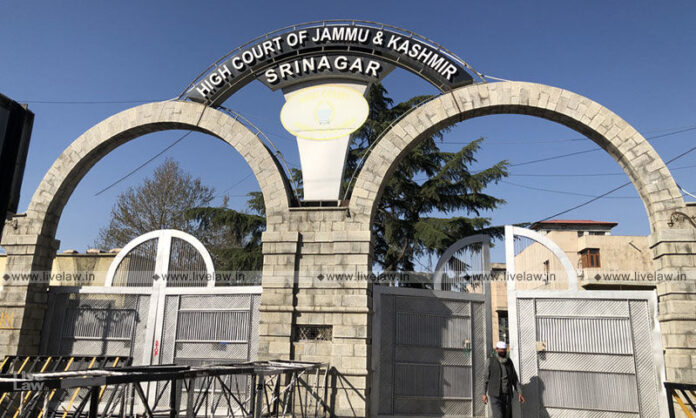India Tomorrow
Srinagar–Jammu and Kashmir High Court has ruled that calling J&K ‘occupied by army’ is not freedom of speech and it does not enjoy the protection under Article 19 (A).
“It is one thing to criticize the government for its negligence and express outrage on the violation of human rights of the people, but it is quite another to advocate that the people of a particular part of the country are slaves of the government of India or that they are under the occupation of armed forces of the country,” the court said.
Justice Sanjay Dhar made the statement while hearing a petition filed by advocate Muzamil Butt seeking to quash FIR registered against him under the Unlawful Activities (Prevention) Act.
The FIR was registered against Butt for his Facebook posts criticizing the killings of civilians in Larnoo village in October 2018. Butt had also expressed outrage on social media platforms at other incidents of violence, which was within his right to free speech, the judge said in his order.
In two Facebook posts, Butt had said that Kashmir has been occupied by the military, “which is like cancer”, and that the people of the Valley are like slaves to the Union government, the judge added.
The court said by making these comments, Butt was supporting the claim that Jammu and Kashmir is not a part of India
“In my opinion, the freedom of speech and expression guaranteed under the Constitution cannot be stretched to such a limit as to allow a person to question the status of a part of the country or its people,” it said.
The court said that by posting these messages, the advocate has crossed the line that separates freedom of speech from the reasonable restrictions on it.
“The intention of a person can be gathered from the words spoken or written or other expressions,” the judge said. “Therefore, the expressions used by the petitioner, who happens to be a law-knowing person, clearly show that he intended to advocate a particular ideology which supports the claim of cessions of Jammu and Kashmir, which is an integral part of India.”
The court held that Butt’s action falls within the definition of “unlawful activity” in Section 2(O) of the Unlawful Activities (Prevention) Act. On these grounds, it refused to quash the case filed against Butt.
The ruling will have far-reaching consequences on the journalists working for international organizations. Most international organizations use the standard practice of defining Kashmir. However, with the new ruling, they will have to change their style sheet according to the law of the land.





